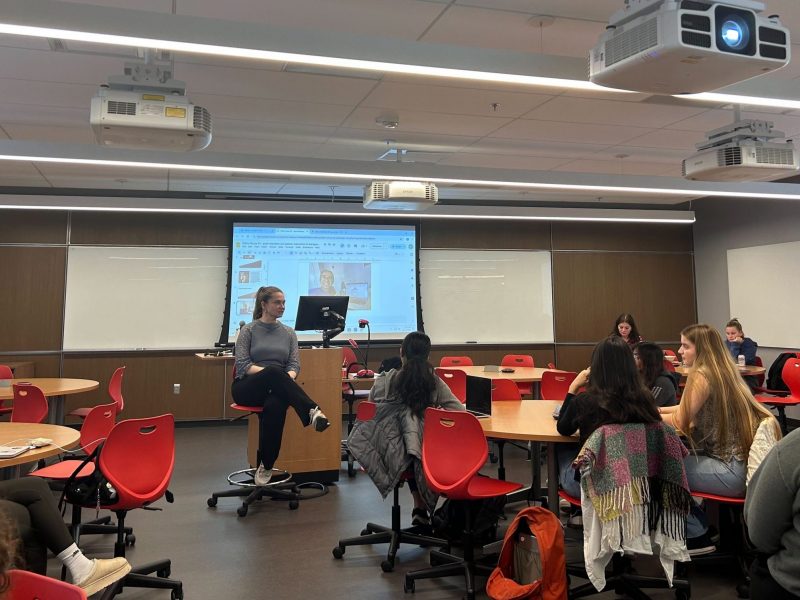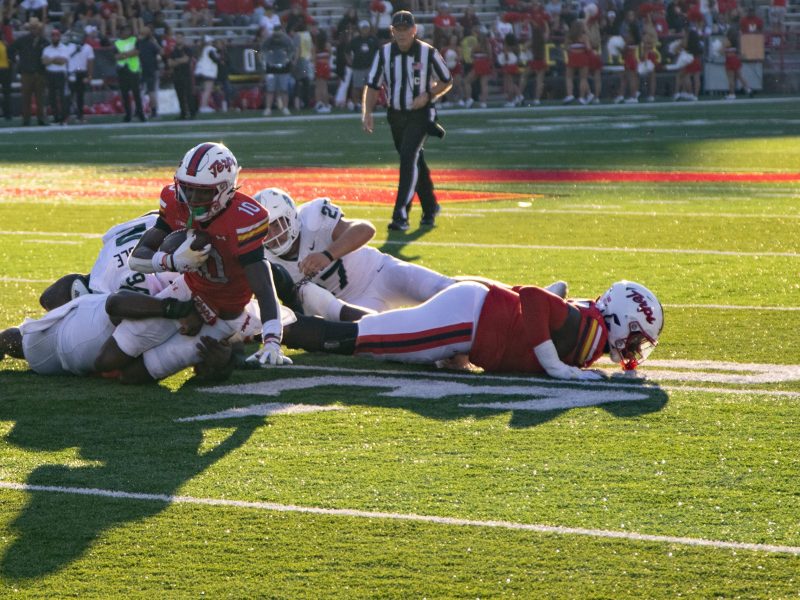
University Police conducted a sobriety check on Route 1 Friday.
University Police arrested six motorists on DUI charges last weekend, including one they identified as a university alumnus, at a sobriety checkpoint on Route 1.
Police determined university alumna Sarah Kling, 23, of Annapolis, was too impaired to drive and arrested her. Only 859 cars passed through the checkpoint between 11 p.m. Friday and 2:30 a.m. Saturday, Mueck said, which is half the usual amount. The dwindling traffic prompted police to close the checkpoint a half hour shy of its scheduled 3 a.m. end time.
“We were surprised at how light the traffic was, especially with students coming back,” Mueck said. “Route 1 is usually a busy roadway.”
Designated a “target-rich environment” because of its typically heavy traffic and role as a throughway, Route 1 checkpoints have yielded upwards of 20 arrests in one night. But six arrests is the average, said Lt. Robert Mueck.
On weekdays, an average of two in 10 drivers on Route 1 is impaired, and on weekends as many as six in 10, said Leslie Thomas, a Mothers Against Drunk Driving representative who frequents numerous area checkpoints.
College Park’s status as a college town does not contribute to Route 1’s “target-rich” title, as affiliation with the university is not documented by police. However, Mueck said about a quarter or less of the arrests are university students. The university only gets involved if a DUI occurs on the campus or a student is convicted of DUI in court, Officer Ken Leonard said.
DUI checkpoints have two functions – to remove impaired drivers from the road, eliminating potentially dangerous incidents, and to alter the behavior of those planning to drink and drive.
“We could have had zero arrests and it would have been a success. The purpose of a checkpoint is to change people’s behavior because when word gets out in a bar that there is a checkpoint, and that stops someone from having another drink, then that’s a success,” Mueck said.
University Police give their checkpoints a third, more sentimental purpose, which is to honor individuals who lost their lives to drunk drivers.
Last weekend’s checkpoint was dedicated to Brian Hull and Michael DeFrance, who were struck and killed by a drunk driver while crossing the street in 1995. They were seniors at the university.
“The night it happened, the police were very supportive and kind and any contact I’ve had with the police has been very supportive,” said Brian’s mother Diane, who was present at the checkpoint. “I’m glad they’re doing this,” she said of the checkpoint.
Hull’s and DeFrance’s deaths serve as prime examples of why impaired driving is even more hazardous in college towns such as College Park. With students constantly darting across the street and walking along Route 1, the risk of a student fatality is even greater.
“The drivers do not look around, and in College Park you have kids out here, so drivers have to be aware of what they’re doing,” Thomas said. “You shouldn’t have to die because you’re doing something right and someone else wasn’t.”
The National Highway Traffic Safety Administration launched a widescale anti-drinking and driving campaign, including nationwide DUI checkpoints, after the Department of Transportation released its 2005 Alcohol-Related Traffic Fatalities data last Wednesday.
University Police’s checkpoint was part of this effort, but due to the high cost, this will be the department’s last checkpoint of the year.
According to Lt. Mueck, the state allocates $14,000 a year for DUI checkpoints, each of which costs just under $4,000 to execute, resulting in an average of three per year. Last weekend’s checkpoint marks No. 4 for 2006.
“The state has done a lot to get these checkpoints going, and I don’t think they’re under-funded. Staffing is the real issue,” Mueck said. “Checkpoints are labor-intensive, and regular patrolling goes on at the same time, so it’s hard on the staff.”
Despite these difficulties, the checkpoints are considered highly effective by both officers and the victims’ families.
Nancy Schallhorn, whose husband was killed by a drunk driver in 1981 has attended University Police’s checkpoints since the one dedicated to her husband in June.
“I’m just very impressed with the job they do. I would expect them to do a good job, but they just did over and above,” Schallhorn said.
Contact reporter Steven Overly at overlydbk@gmail.com.


